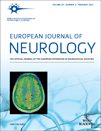Infantile convulsions with mild gastroenteritis: a retrospective study of 25 patients
Abstract
Background: The aim of this study was to analyze the epidemiologic, clinical, and evolutional characteristics in patients who presented convulsions with mild gastroenteritis (CwG) to facilitate the diagnosis in daily clinical practice.
Methods: Twenty-five medical records of patients diagnosed with CwG were reviewed, and the epidemiological and clinical features, results of complementary studies, and evolutional data were collected.
Results: Age of onset ranged between 12 and 24 months in 76% of patients. Female/male ratio was 2.6 (18 women and seven men). Seizures were mostly brief (<5 min) and apparently generalized, and often repetitive occurring in cluster (2.2 seizures per episode). One patient with status epilepticus was recorded. The average interval between the onset of gastroenteritis and seizures was 3.8 days, even though seizure preceded diarrhea in three cases. Mean rectal temperature at the moment of seizure was 37.1°C. Rotavirus antigen was positive in stool in 17 episodes (55.8%). There were no abnormalities in serum biochemistry tests and cerebrospinal fluid studies. Four patients showed anomalies in the interictal electroencephalogram. The period of follow-up was 4.2 years. Five patients (20%) experienced recurrences when suffering a new gastroenteritis episode. One patient developed epilepsy during the follow-up period.
Conclusions: CwG would constitute a well-differentiated convulsive syndrome. Prognosis is excellent, but a relatively important percentage of patients relapse when suffering a new diarrhea episode.




